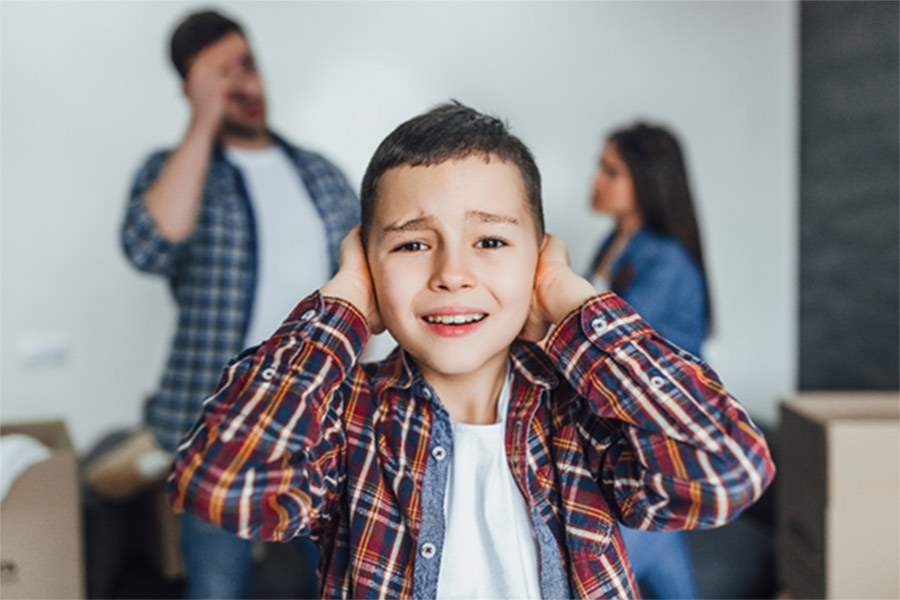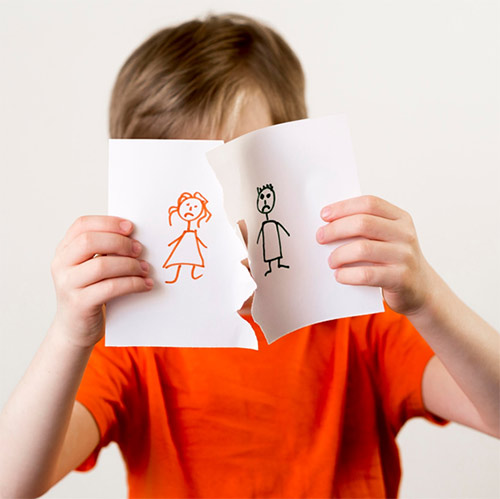
One of the most complex decisions we can face in life is ending a romantic relationship. This decision becomes even more complicated when there are children involved, as many people fear that divorce or separation could cause them irreparable harm. However, it is essential to understand the potential consequences, both for us and for our children, of continuing a romantic relationship in which we are not happy.
Emotional consequences for the children
The idea that staying in a dysfunctional relationship is the best way to protect the children is a myth that has persisted for a long time. This idea is understandable since not too long ago, it was not permitted for married couples to separate or divorce. Family unity used to be prioritized over the emotional well-being of family members. Fortunately, things are no longer this way, and now we have the option to separate whenever we want. Nevertheless, these myths about couples needing to stay together for the sake of the children still prevail in our society more than we think.
Is it better for them to stay together despite everything? When parents choose not to separate for the sake of their children, they are often trying to shield them from the negative implications that can accompany a divorce. But the truth is that children are very sensitive to what happens at home, and more often than we think, they feel the tension and unhappiness between their parents. This can make them feel confused, anxious, or guilty, thinking that they are the cause of what is happening.
Another important aspect to consider is the impact that a dysfunctional romantic relationship can have on children’s perception of love and relationships in the future. When parents stay together only for the sake of their children, children may grow up thinking that it is normal to be in an unhappy relationship. This can influence their future choices in partners and lead them to repeat unhealthy relationship patterns. In the end, we learn from what we see at home, and if we have not had a model of a healthy relationship, we are unlikely to know what it should be like. This can lead to them learning that life is a constant conflict, that problems are not resolved but ignored, that shouting, blaming, or showing disdain are valid ways to deal with others when problems arise, that affection is not expressed in romantic relationships (because my parents do not do it), or that even if you are not happy with someone, separation is not an option, and you must endure it because that is how relationships are.
Separation with children involved has an emotional impact on everyone, that is true. We cannot prevent children from feeling pain, frustration, or uncertainty when they receive news that implies such a significant change in their lives. However, living in an environment filled with conflict and hostility between their parents, or one where there is an absolute lack of affection and love, can be much more detrimental to their emotional and psychological development than separation. Moreover, some children may feel a certain relief when they are informed of such news, especially those who have lived in a hostile environment for some time.
How to Separate Without Negatively Affecting the Children
When parents make the conscious and respectful decision to separate, they can provide a more stable and healthier environment for their children. Children need to feel loved, secure, and cared for, and a home where parents respect each other, even if they live separately, can offer exactly that.
Furthermore, by separating amicably and cooperatively, we are teaching a model of mature and responsible behaviour in conflict resolution. Children can learn that it is acceptable to end a relationship that no longer works and that it is possible to maintain a respectful relationship with an ex while their love for them remains unshaken. They will learn that, even though it hurts, sometimes difficult decisions must be made to prioritize their well-being.
If you have concluded that separating is the best option for you and your children, it is essential to prioritize communication and emotional support. It is important for children to know what is happening and what will happen to them from now on. Some parents choose not to talk much with their children about the situation because it is delicate, and they think it will make them feel worse. Nothing could be further from the truth: talking to your children about the situation honestly and compassionately can help them process their feelings and concerns and address any doubts they may have. Many children may think that all of this is happening because of them, because they have not behaved well, that maybe their parents will reconcile and get back together… It is essential that we understand how they are interpreting the situation so that we can dispel any false beliefs they may have about it.
After the separation, it is important to try to maintain the children’s routines as much as possible and ensure that communication between the parents is smooth so that the children are not affected or caught in the middle of conflicts and do not have to act as intermediaries.
At what age of the children is it better to separate?
This is a question that is often asked by people facing this dilemma. However, there is no specific age of the children that is better for separation. While it is true that it is a significant life change and can affect them differently depending on their age, deciding to wait until they reach a certain age is the same as staying together to prioritize their well-being, even if it leads to unhappiness. The decision should be based on the individual circumstances of the family and what promotes the well-being of the children and yourselves.
In conclusion, ” I’m not separating for my children” may be a statement filled with good intentions, but it is important to remember that the quality of the relationship between parents has a significant impact on the well-being of the children. Prioritizing a stable, loving, and healthy family environment, whether together or separately, is the best expression of love and responsibility and the best lesson we can teach the youngest members of the family.
If you find yourself in this situation and do not know how to handle it, we can help provide you with the necessary tools for you and your children to navigate such a difficult stage. Remember that you are not alone in this and that you are fighting to give your children and yourself the best possible outcome for everyone.”
Aina Fiol Veny
Psychologist Col. Nº B-02615








